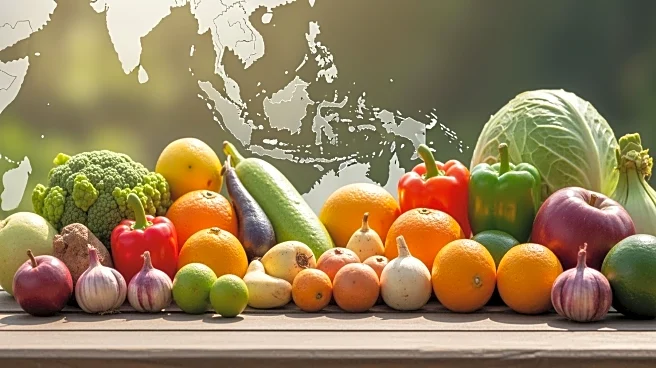What's Happening?
President Trump has announced new trade agreements with Malaysia and Cambodia, along with potential deals with Thailand and Vietnam, aimed at boosting U.S. agricultural exports. These agreements include the elimination of tariffs on ethanol exports and commitments
from Thailand to purchase U.S. soybean meal. The deals are expected to enhance market access for U.S. corn, soybeans, and pork, benefiting American farmers and producers.
Why It's Important?
These trade agreements represent a significant opportunity for U.S. agriculture to expand its market presence in Southeast Asia. By reducing tariffs and non-tariff barriers, the deals are poised to increase demand for U.S. agricultural products, supporting farmers and contributing to economic growth. The agreements also reflect strategic efforts to balance trade relationships and strengthen the U.S. biofuel and pork industries.
What's Next?
The successful implementation of these trade agreements will depend on continued collaboration between the U.S. and Southeast Asian countries. Stakeholders in the agriculture sector are eager to see the frameworks finalized and operational, which could lead to increased exports and economic benefits. Monitoring the impact of these deals on U.S. agriculture will be crucial in assessing their long-term success.
Beyond the Headlines
The trade deals highlight the importance of international cooperation in addressing global agricultural challenges. By opening new markets, the agreements could lead to shifts in production and trade patterns, influencing global food security and economic dynamics. The focus on biotechnology and sanitary regulations also underscores the role of innovation in modern agriculture.















